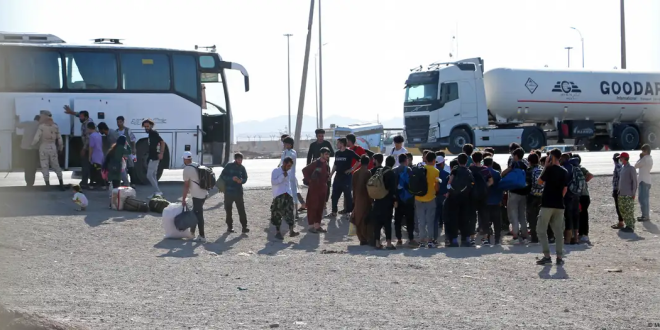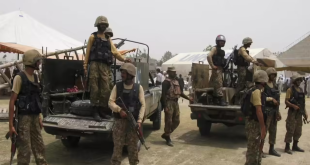KABUL – As Israeli airstrikes intensify across Iran, Afghan refugees living there are once again caught in crisis. With Tehran among the targeted cities, fear has gripped refugee communities, prompting thousands to flee the country daily. Border officials report that 5,000 to 10,000 Afghans are crossing into western Afghanistan each day through Islam Qala — many without food, shelter, or basic supplies.
Iran hosts up to 6 million Afghan nationals, most of whom fled war or Taliban persecution. But now, rising insecurity, crackdowns on undocumented migrants, and inflated prices have made survival harder. Afghan refugees say they are harassed, denied services, and banned from traveling within Iran. “We have no place to live, no freedom of movement,” one refugee told DW.
Some have even been killed in the airstrikes. Abdul Ghani, a father in Ghor province, said his son was killed in Tehran just days after arriving for work. “My heart is broken. My son is gone,” he said.
Return, however, is not an option for many. Former Afghan military and government personnel fear Taliban retribution, while aid agencies warn that Afghanistan lacks the capacity to support mass returns. Only 18% of this year’s humanitarian response plan is funded. Meanwhile, smugglers are luring desperate Afghans with false promises of safe passage to Turkey — a claim denied by border officials.
Humanitarian groups and former officials like Mohammad Omar Dawoodzai are calling on the international community to intervene, urging support for returnees and protection for vulnerable Afghan refugees still in Iran.
As bombs fall and hope fades, Afghan refugees now face a perilous choice: stay in a country under fire or return to one still under Taliban rule.
 Afghanistan Times Latest News and Analysis from Afghanistan and the Region
Afghanistan Times Latest News and Analysis from Afghanistan and the Region




